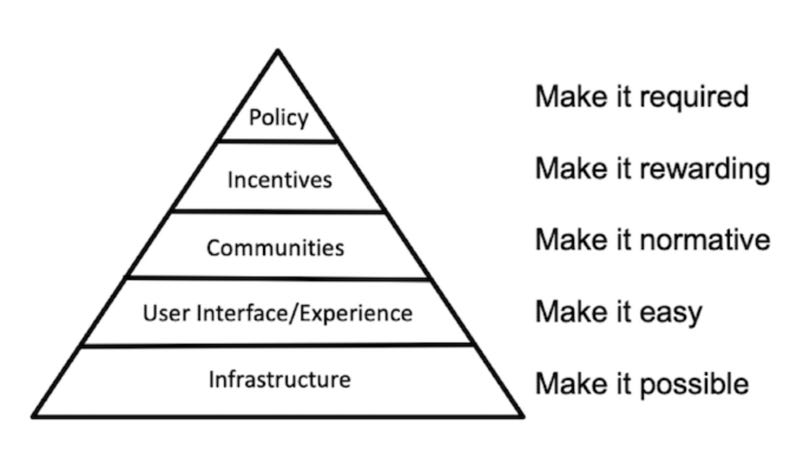Prior to June 2024, foreign citizens seeking naturalization in Germany had to wait at least eight years.
This long waiting period was significantly shortened by the government that took office in 2021. The center-left Social Democrats (SPD) and their coalition partners, the environment-oriented Greens and neoliberal Free Democrats, determined that naturalization should generally be possible after five years — and, for people who were deemed to have rapidly integrated into Germany, after three years. Dual citizenship was permitted for all applicants.
But there were conditions: To receive a passport quickly, people needed a sufficient income, a solid command of the German language and a proven record of engagement in society — say by volunteering with the fire department.
Now, what had been referred to as "turbonaturalization" after three years has been scrapped by Germany's new government, led by the center-right Christian Democrats (CDU) and their Bavarian partners, the Christian Social Union (CSU), and supported by SPD, which has been in office since May.
Dual citizenship remains possible
Interior Minister Alexander Dobrindt, of the CSU, initiated most of the latest amendments, which he had championed.
During a debate in the lower house of parliament, the Bundestag, in June Dobrindt applauded the migrants who were striving for German citizenship. "Of course, naturalization is a significant factor for the cohesion in a country," he said in a speech.
But then Dobrindt condemned turbonaturalization as the wrong incentive and said it was a pull factor for more immigration. "It created the impression that the German passport was on offer in some type of special deal," he said.
Jannes Jacobsen, of the Berlin-based German Center for Integration and Migration Research (DeZIM), said he expected that little would change. "The essence of the previous reform was shortening the waiting time to five years," he said, "and the new coalition is keeping that."
An essential condition for obtaining a German passport is a person's ability to support themselves without state assistance. Jacobsen said applicants' circumstances could change quickly as they await decisions — for example, if they experience sudden financial hardship through injury or divorce.
Migrants in Germany appreciate new naturalization law
Few benefited from the fast-tracked process
Jacobsen said there was little data that would allow researchers to measure the the effect of fast-tracked citizenship after only 15 months. Only 13% of the foreign population living in Germany met the language and economic requirements. The share of people with the level of outstanding community engagement required for naturalization in three years would very likely be much lower.
And, Jacobsen said, there is a more practical consideration. "Just because someone submits an application for citizenship, it doesn't mean that it will be granted within a short time," he said. "In Germany, we have a fundamentally overloaded administration. We have unbelievably long processing times."
Jacobsen said government offices were not equipped to handle the increase in applications and they remained understaffed now. Lucky applicants may have their naturalization within six months. Unlucky ones must wait over four years.
This situation will take time to change because the shortage in skilled labor that has plagued Germany also affects government offices. The government is competing with the private sector for staff.
Filiz Polat, a lawmaker for the Greens, who are now in the opposition, said quicker naturalization processes were essential. She spoke against changing the regulations in her address in the Bundestag. "One of the first official acts of this government is to make access to German citizenship more difficult again for highly qualified, well-integrated people," Polat said.
And this is happening as Germany is desperately searching for skilled workers — "from the hospital to the child care center, from the workshop to the high-tech laboratory" Polat told the Bundestag. "That is not only unfair, but also unreasonable."
Labor shortage forces Germany to accept more qualifications
Naturalization and the skilled worker shortage
Jacobsen has a different view of what is causing the shortage in skilled labor. He said processes to recognize foreign qualifications would need to be simplified. The previous government also attempted to address this issue.
But, Jacobsen said, there is more to the issue than that, as well. "If you want to attract skilled workers to cities," he said, "you also need to ensure they find affordable places to live there — not only in the countryside." On this point, Jacobsen aligns with the German interior minister.
"If you want to attract skilled workers, you first need to have a prosperous middle class, a functioning economy, attractive jobs, a country in good working order, a level of education and educational possibilities for the children — and good policy," Interior Minister Dobrindt said.
This article was originally written in German.
While you're here: Every Tuesday, DW editors round up what is happening in German politics and society. You can sign up here for the weekly email newsletter, Berlin Briefing.
.png)




